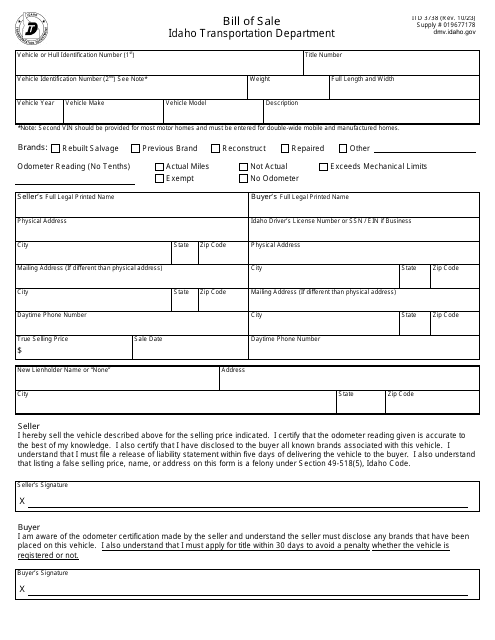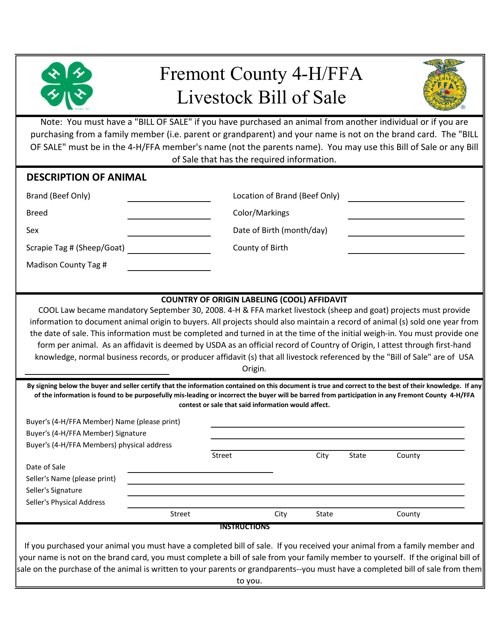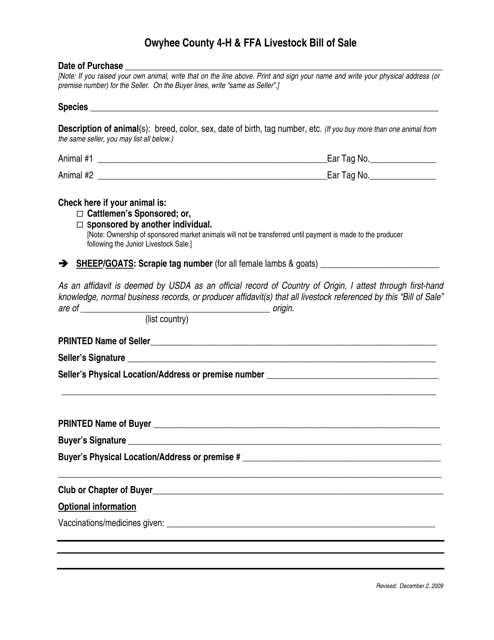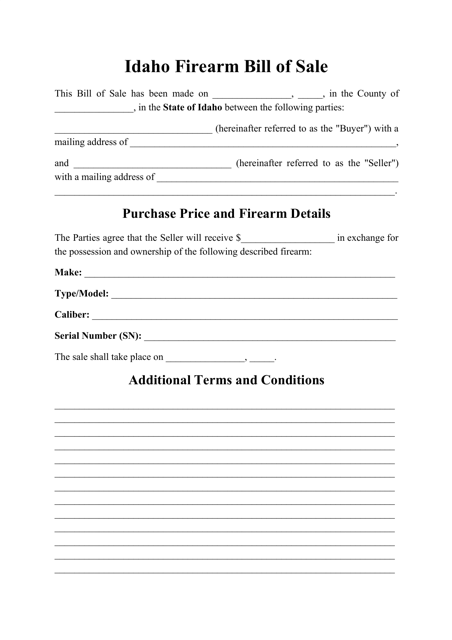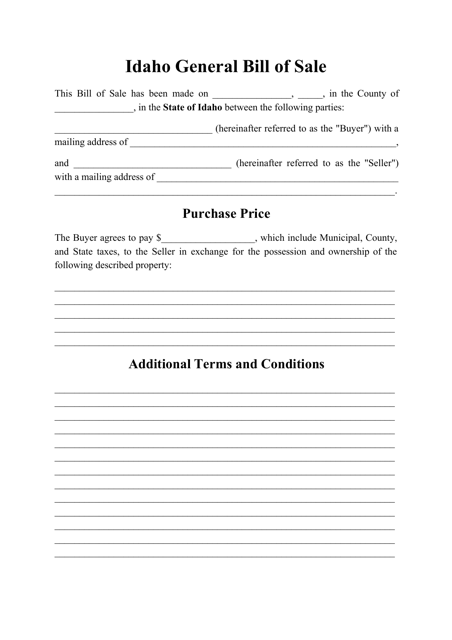Free Idaho Bill of Sale Forms and Templates
What Is an Idaho Bill of Sale?
An Idaho Bill of Sale is a legal document where the change of ownership of personal property is stated in writing. There are certain types of goods that must be registered with the state, in which cases this document is required by law. In all other instances, the bill of sale is not mandatory, although it is strongly recommended because it protects both the seller and the buyer if any dispute arises in the future regarding the item that is being sold. Both parties must sign the form and keep a copy of it for their records. All Idaho bills of sale must include the full legal name of the buyer and the seller, their driver’s license number, legal addresses, and signatures. These documents must also set forth the purchase price, method of payment, and the date of the transaction. The following are some of the most common types of bill of sale in Idaho, and specific elements must be included in each of them.
- Idaho Generic Bill of Sale. This document may be used for general items such as appliances, clothing, furniture, and any other personal property that is not a vehicle, boat, or firearm. It must clearly state the basic details to identify the product that is being sold, such as its serial number. It must also include any other terms and conditions the parties may agree to; for instance, whether the item is covered by a manufacturer’s warranty or not.
- Idaho Vehicle/Boat Bill of Sale (Form ITD 3738). You must use this document when selling a motor vehicle or a boat. The specific information that you must put in writing is the vehicle’s model, year and make, the vehicle identification number, title number, dimensions, weight, body type, and the odometer reading. For boats, include a hull ID and the registration ID. Should there be any lienholder, their contact details must be included as well.
- Idaho Firearm Bill of Sale. This document is used for selling guns, and the specific information required is the make, model, caliber, and the serial number of the firearm. This form must include the date of birth of the buyer, so as to state that the gun is not being sold to a minor without the written consent of their parent or guardian.
- Idaho Livestock Bill of Sale. These are used in this state of Idaho for transactions related to farm animals.
Do You Need a Bill of Sale in Idaho?
A bill of sale in Idaho is required when you need to register a vehicle with the Idaho Department of Transportation, or when you need to title and register a boat with the Idaho Department of Parks and Recreation. Regarding the sale of guns or any other personal item, there are no Idaho bill of sale rules and, therefore, they are not mandatory.
Documents:
5
Use this form if you wish to sell a motor vehicle, trailer, or boat. It is issued by the Idaho Department of Transportation and is required for the legal registration and operation of a vehicle in the state.
This document is used for buying and selling livestock in Fremont County, Idaho. It is commonly used by members of 4-H or FFA organizations.
This document is used for the sale of livestock in Owyhee County, Idaho by members of the 4-H and FFA organizations.
This form generally includes information about the buyer and the seller, as well as details about the firearm and constitutes a legally binding agreement between the involved parties. It may be used by firearm dealers and individuals in Idaho.
This document serves as a receipt and determines the terms and conditions of a sale of personal property. The latter implies a range of personal goods, from jewelry and tools to furniture and business equipment. Both the seller and the buyer are expected to sign it and keep a copy for their records.

